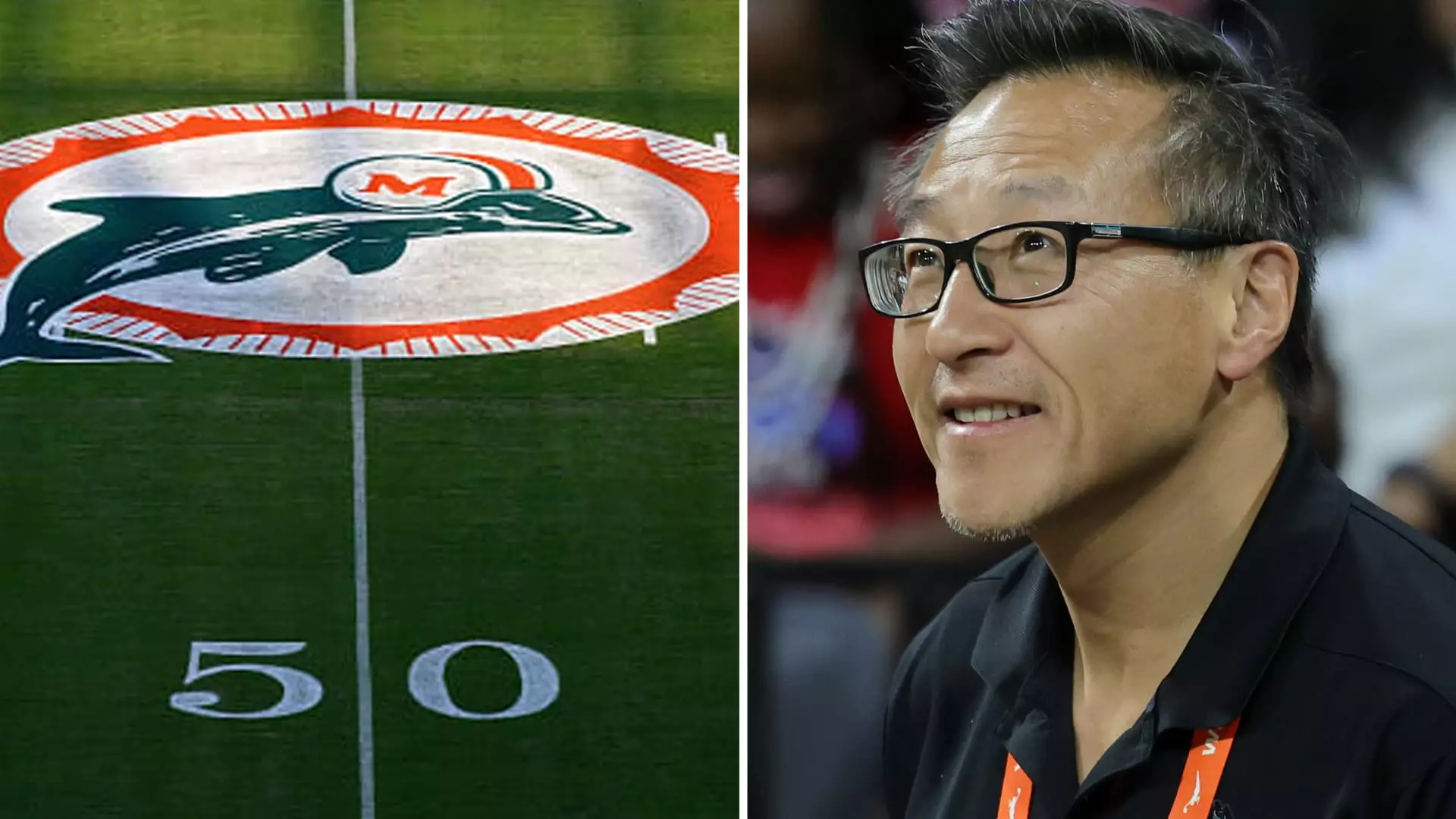The Miami Dolphins, a staple franchise in the National Football League (NFL), are currently negotiating a significant shift in ownership dynamics. Reports indicate that the Dolphins are in advanced discussions with Ares Management, a notable private equity firm, and billionaire Joe Tsai, who is also the owner of the Brooklyn Nets. This impending transaction, which could see a minority stake in the team sold, underscores a growing trend in professional sports: the increasing involvement of private equity in team ownership. Such developments signal a transformation within the realm of sports finance and ownership structures.
The preliminary discussions about this investment evaluate the Dolphins and their accompanying assets—including Hard Rock Stadium, the Miami Grand Prix, and the Miami Open—at an impressive $8.1 billion. Notably, the valuation of these assets indicates a robust interest in the multifaceted revenue streams that modern sports franchises offer, from game day income to hosting significant events. However, it’s essential to realize that the value attributed to these assets does not include a controlling stake which, according to sources, could exceed $10 billion. This discrepancy highlights the complexity of sports valuations in a period where team worth is intricately tied to various income-generating opportunities beyond traditional game revenues.
Impact on NFL Ownership Dynamics
This potential private equity investment represents a historical first for the NFL, as it is poised to adopt new finance rules that permit limited private equity stakes in teams. Until August 2023, the NFL had a long-standing aversion to outside investment, maintaining a more insular ownership structure. This change can be interpreted as a response to soaring team valuations, which have made complete ownership increasingly elusive for traditional buyers. By enabling minority investments, the NFL is opening its doors to a broader array of financial partners, positioning itself to embrace the financial resources necessary to compete in a rapidly evolving sports environment.
Stephen Ross and His Vision
Business magnate Stephen Ross, who acquired the Miami Dolphins for $1.1 billion in 2009, is looking to leverage this sale to bolster his real estate ventures in South Florida and further diversify his investments within the sports industry. Ross’s dual role as both the owner of the Dolphins and the operator of Hard Rock Stadium exemplifies a unique business model that allows him to maximize revenue from not only NFL games but also from major events held at the venue, such as the Miami Grand Prix and the Miami Open. His reported rejection of a $10 billion offer for total control over the team further emphasizes his commitment to keeping the team within his family, suggesting a focus on legacy as much as wealth.
As Ares Management and Tsai deliberate their involvement, this transaction could serve as a bellwether for future investments across the league and the broader sports landscape. Tsai’s portfolio already includes a significant presence in professional sports, from basketball to lacrosse, and illustrates a trend where prosperous individuals seek to build extensive sports empires. His approach exemplifies the modern owner’s mentality—a desire not just to own a team but to curate an entire entertainment and sports ecosystem, nurturing brand loyalty and fostering diverse revenue streams.
The Miami Dolphins’ negotiations with private equity present a compelling case for the evolving nature of sports ownership. As owners and investors recalibrate their strategies to adapt to economic pressures and ownership possibilities, we may witness a new era where traditional frameworks are challenged. The involvement of private equity firms and high-net-worth individuals like Joe Tsai highlights both an unparalleled opportunity and a potential paradigm shift in the management of sports teams. Keeping an eye on how these negotiations unfold could offer crucial insights into the future landscape of NFL ownership and the broader professional sports domain.

